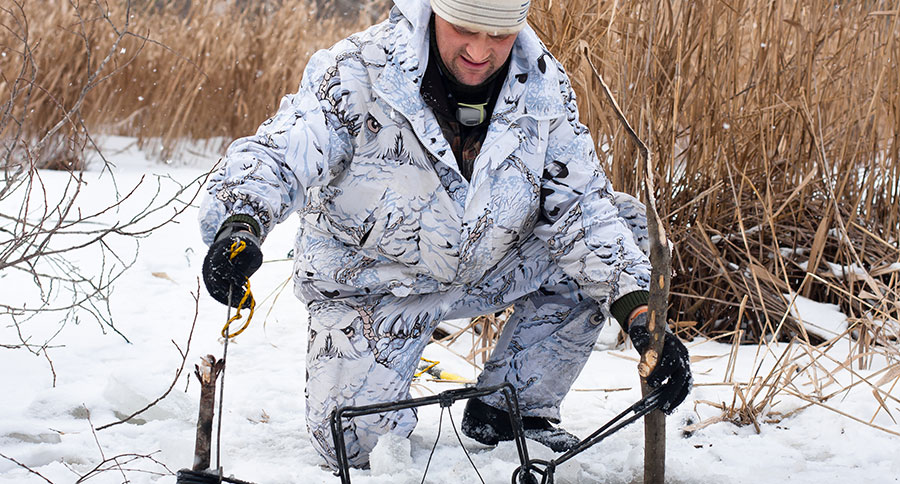Legislators in both Montana and Connecticut have introduced anti-trapping bills. All outdoorsmen and women need to speak up and oppose these measures.
Trapping is constantly under fire from ignorant and deceitful anti-trapping groups. The latest attacks are in Montana and Connecticut, where legislators have introduced two punitive bills that threaten this American tradition.
Montana
In Montana, Democrat Rep. Bridget Smith has introduced legislation, HB 287, that would require trappers to check their lines every 24 hours during trapping season. Violators could face a $1,000 fine or even imprisonment for up to six months.
"Animal-rights groups know that if they can successfully force 24-hour trap check requirements, the effectiveness of trappers will plummet as animals will sense the continual disturbance and presences of humans," said Luke Houghton, Sportsmen's Alliance associate director of state services.
"Additionally, they know that because trappers cover such a large area, mandating 24-hour checks will increase the costs of running a trap line while reducing the area they are able to cover," said Houghton. "That's why these requirements have become a favored tactic for these groups to further their ultimate goal of banning all trapping."
This bill would severely limit the effectiveness of a good deal of trapping for certain species. It would also discourage many trappers from the activity, as most work full-time jobs and must cover a lot of territory to check their traps. This is, in my opinion, an effort by anti-trapping groups to both discourage trappers and to limit the amount and kind of trapping they engage in.
HB 287 is scheduled for a hearing in the House Fish, Wildlife, and Parks Committee in room 172 of the state capitol building Feb. 7 at 3:00 p.m.
Connecticut
Republican Rep. Brenda L. Kupchick has sponsored similar legislation—HB 6014—that would ban the use of leg-hold and body-gripping traps. If this bill goes through in Connecticut, opponents are afraid anti-trapping groups will attempt to introduce similar bills in other states.
Leghold traps and body-grip traps are some of the most effective and humane means of controlling furbearer populations.
"Leg-hold and body-gripping traps are proven, effective methods that help manage furbearer species that can cause serious property damage and spread disease," said Houghton. "Protecting property and public safety should be the top priority of Connecticut legislators."
In addition to simply providing trappers with a source of income and supplying the fur market, nuisance animals need to be controlled. Raccoons, for example, can carry rabies and become a danger to pets and people when their populations boom. Wildlife management is made easier with trapping.
Beavers too, can cause significant damage to property and wildlife habitat if left unchecked. Trapping is the most effective means to accomplish furbearer population control, and maintain the number of animals that's sustainable.
Currently, HB 6014 has been assigned to the Joint Committee on Environment where it awaits a hearing.
Sportsmen's Alliance
Trapping is an honorable and ethical American tradition. Every outdoors person should feel that they have a stake in protecting this tradition. We all need to do whatever we can to ensure that anti-trapping legislation such as these two bills do not pass.
You can also join the fight by becoming a member of the Sportsmen's Alliance. This is a pro-hunting, pro-angling, and pro-trapping organization that works hard to protect all of these outdoor activities.
While other sportsmen's groups also fight to safeguard our rights to hunt, trap and fish, Sportsmen's Alliance gives trapping equal emphasis with hunting and fishing, protecting all of our natural resources across the United States.
Like what you see here? Experience more articles and photographs about the great outdoors at the Facebook page, Stumpjack Outdoors.
NEXT: TRAPPING IS BETTER FOR KIDS THAN VIDEO GAMES
WATCH
https://rumble.com/embed/u7gve.v4h3l1/




